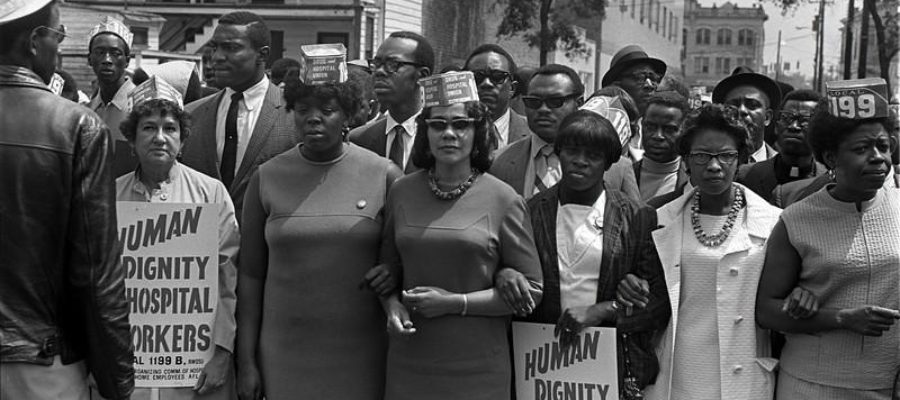
While working on the hospital floor I developed a relationship with with a few nursing colleagues. Naturally I love learning and particularly learning from older, wiser people. Ms. Jan and Ms. Sandra were two older nurses who worked with us. They’ve been working for over 40 years. I recall stories they’d tell of how nursing used to be in the past. That included racism, education, and the Charleston Hospital Workers Strike that took place in the 1960s. Learn more about other nursing history here.
The Strike
2020 marks the 51st year anniversary of the Charleston Hospital Workers Strike. It originated in February 1969 when five Black healthcare workers were fired on the job. The employees were nursing assistants who were not given access to patients charts. That in itself is unfair. You have to know information such as the patients name, medical history, allergies, etc. in order to provide quality care. Not knowing any of that pertinent information will set the staff up for errors which could lead to a sentinel event.
Inequality
Soon after that incident it was determined that other staff including culinary workers, laundry workers, and LPNs (licensed practical nurses) were also experiencing unfair treatment at work. Additionally, the pay was unequal too. One of the women who protested during the hospital workers strike didn’t even have her nursing credentials recognized by the Medical College Hospital. Speaking of nursing credentials, at the time there were no Black students at the hospital’s School of Nursing.
Over 400 Black employees became fed up with unfair wages, discrimination, bullying, and other intolerable working conditions at the Medical College Hospital and Charleston County Hospital. The strike was led by mostly women. It lasted approximately 113 days, almost 4 months. Afterwards an unofficial agreement was made with the all white hospital administration. The fired staff were rehired, employees received raises, and proper grievance procedures were established. Medical College Hospital is now the Medical University of South Carolina (MUSC).

The hospital strike was part of the civil rights movement. Prominent civil rights activists such as Coretta Scott King, Rev. Jesse Jackson, and Henry Lewis were participants on the front line. Click here to see Mrs. King speak in Charleston. Local Charleston activists included Mrs. Mary Moultrie, William “Bill” Saunders, my friend Ms. Sandra, and Mrs. Christine O. Jackson, executive director of YWCA, former First Lady of my church, and first cousin to Coretta Scott King.

MUSC’s African American Firsts Post Hospital Strike
- 1971 First African American graduates from the College of Medicine- Bernard W. Deas Jr.
- 1971 First African American male graduates from the College of Pharmacy- James L. Hodges.
- 1972 First African American female graduates from the College of Nursing- Rosslee Douglas.
- 1973 First African American female graduates from the College of Medicine- Delores Gibbs.
- 1973 First African American male graduates from the College of Dental Medicine-George McTeer.
- 1980 First African American females graduates from the College of Pharmacy- Phyllis Johnson-Wolf, Janice Jones, and Cassandra Tisdale.
- 1983 First African American female graduates from the College of Dental Medicine- Dorothea Gertrude Taylor.
50th Anniversary

Recap the four day historical event honoring the workers legacy here.
Nursing Today
Sometimes it can seem as though things won’t change, but this strike reminds me of the power that we have. Sacrifice is a part if change. Those women risked their livelihood to make things better for them and unknowingly for me too. When they stopped working, it had to put the hospital in a bind. After all, patients needed care. Certainly the hospital administration felt the financial ramifications which then prompted the negotiation for change and improvements.
Those courageous Black women made their voices heard to change their environment. I applaud them for that. I also applaud the community for supporting them. Progress has been made, but somethings are still prevalent. I’ve seen and heard of Black nurses denied positions when it comes to leadership. Despite having the experience and/or degrees the position will be given to a white candidate.
Although MUSC is one of the largest employers in Charleston, SC the hospital still has claims of discrimination. In the past 10 years the local newspaper published two incidents of discrimination. One claim is by a Black male nurse and the other is by a Black female nurse. Apparently more work is needed to prevent discrimination.





